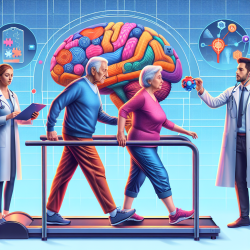Introduction to Retinol and Its Importance
Retinol, a form of Vitamin A, is crucial for numerous biological processes, including vision, immune function, and neurodevelopment. A recent study titled "Genetic influences on circulating retinol and its relationship to human health" provides groundbreaking insights into the genetic factors affecting retinol levels in the body. This research is particularly relevant for practitioners in speech-language pathology, as it highlights potential areas for further investigation and application in therapeutic settings.
Key Findings from the Research
The study conducted a genome-wide association study (GWAS) involving 22,274 participants, identifying eight common genetic variants associated with circulating retinol levels. These findings offer a comprehensive evaluation of the genetics of retinol, revealing its potential causal effects on various health phenotypes such as inflammation, adiposity, and ocular measures.
Implications for Practitioners
For practitioners, understanding the genetic underpinnings of retinol can enhance therapeutic strategies, particularly in pediatric populations. Here are some actionable insights:
- Personalized Nutrition Plans: By recognizing genetic predispositions to retinol levels, practitioners can tailor dietary recommendations to optimize health outcomes.
- Enhanced Screening: Incorporating genetic screening for retinol-related genes could help identify children at risk of deficiencies or excesses, allowing for early intervention.
- Therapeutic Interventions: Understanding the genetic factors influencing retinol can guide the development of targeted therapies, particularly for conditions linked to retinol imbalance.
Encouraging Further Research
The study opens avenues for further research into the relationship between retinol and various health outcomes. Practitioners are encouraged to explore these genetic insights to refine their therapeutic approaches and contribute to the growing body of knowledge in this area.
Conclusion
The genetic influences on retinol provide a promising frontier for improving health outcomes through personalized and data-driven approaches. By integrating these insights into practice, speech-language pathologists and other healthcare professionals can enhance their impact on child health and development.
To read the original research paper, please follow this link: Genetic influences on circulating retinol and its relationship to human health.










